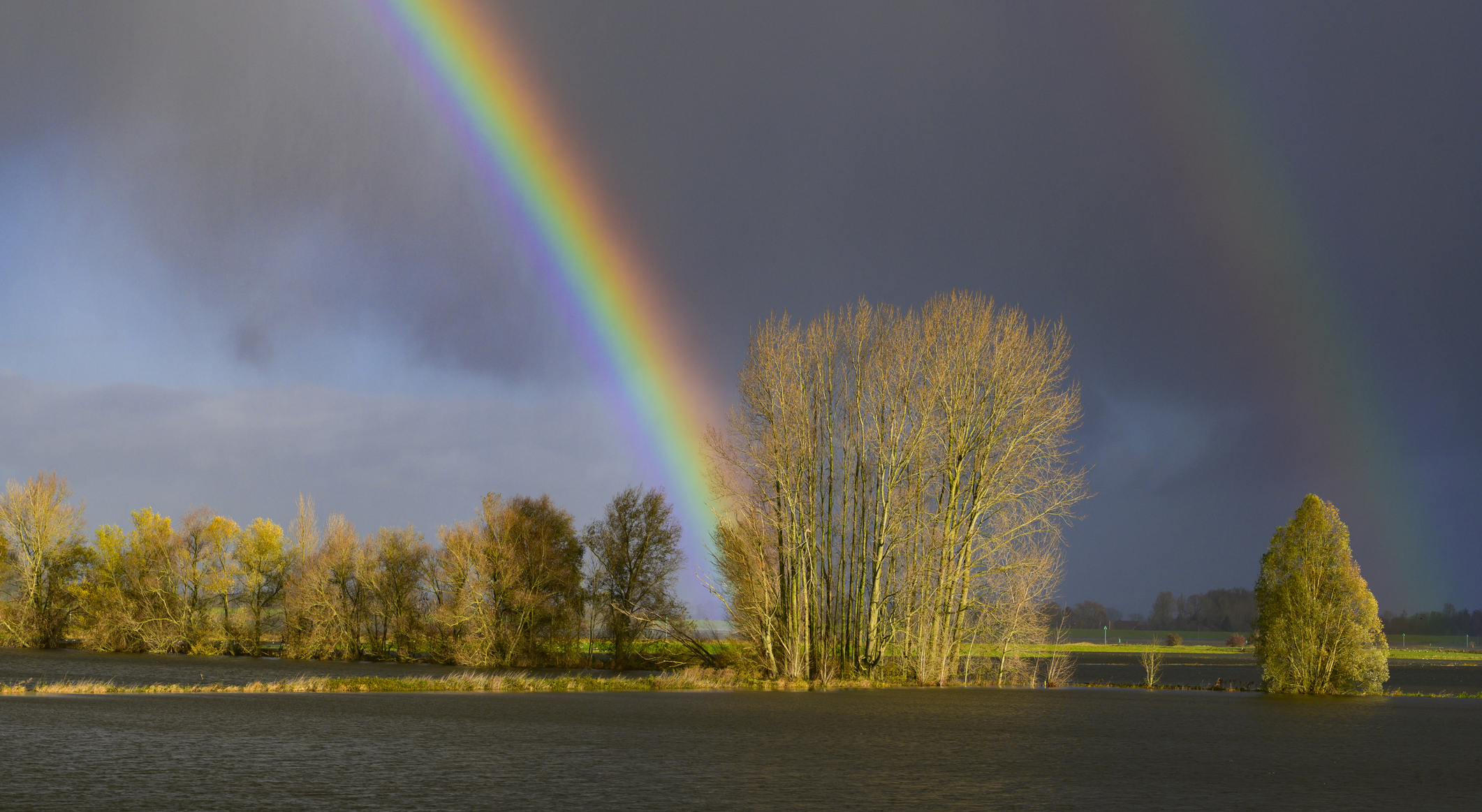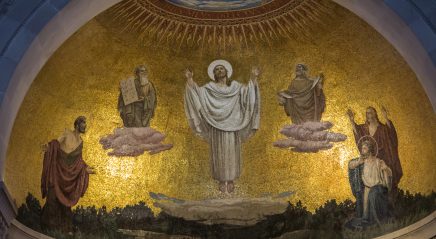Lectionary for Feb. 18, 2024
First Sunday in Lent
Genesis 9:8-17; Psalm 25:1-10;
1 Peter 3:18-22; Mark 1:9-15
How do we respond to calamity, particularly if we are responsible for causing it? As a parent I’m consumed with thinking about how to help my kids “make it right” after they hurt each other or us. But I also must practice what I preach and look for opportunities to improve my parenting, especially when I need to apologize for the times when I let my kids down. They’re at the age when hurt feelings can usually be healed by a hug and kind word, but that won’t always be the case. And in the wider world of conflict, violence and mistrust, how do we respond to tragedy? This week’s lectionary passages offer four distinct divine responses to disaster and hope for moving forward.
The reading from Genesis tells of God’s response to the flood that spared only Noah’s family and the animals contained in the ark. As the animals and humans disembark, God promises to never again bring a flood to destroy all life or to end the earth. God sets up the rainbow in the clouds as a reminder to Godself that, with each rain, God should never let the waters blot out life again (9:14-16).
God responds to the disaster of the flood by setting up a public reminder that God never wants to repeat the drowning of creation.
The psalmist takes up the language of reminding and forgetting to urge God to deal with the disaster of sin compassionately. The psalmist is on the edge of calamity, in danger of being put to shame by enemies that may triumph over him. He begs God to remember compassion and faithfulness—God’s defining characteristics since ancient times. At the same time, the psalmist beseeches God to forget youthful indiscretions and adult wrongdoings (25:6-7). Elsewhere, God will proclaim the answer to the psalmist’s prayer: God intentionally forgets sins (Isaiah 43:25).
God responds to the disaster of sin by removing it from divine memory.
In the reading from 1 Peter (one of my favorite books of the New Testament), God responds in yet another way to the calamity of the flood during Noah’s time. After the messiah’s death, Jesus proclaims the good news of reconciliation to the spirits held in prison since the days of Noah’s ark. Now, whether these are “Watchers” and the Sons of God or merely the spirits of humans who died in the flood is subject to debates outside the scope of this reflection. Whoever the spirits are, Jesus comes to offer them tidings of liberation if they have the will to receive the good news. As we read in Jonah, God can still save those who have gone into the grave and corruption (Jonah 2:2,6).
God responds to calamity by saving spirits, even after their time on earth has come to an end.
In this week’s Gospel reading, Jesus offers yet another response to calamity. In a time of capricious political violence, he announces that the kingdom of heaven has come near. The Herodian siblings angled for scraps after the Romans took over increasingly larger parts of the promised land. As always happens in geopolitical struggles, the common people suffer the most as their lands and goods are expropriated, largely to shore up the tenuous position of various rulers. As kingdoms and empires seek to scoop up people and their resources, Jesus announces that God’s kingdom is at hand. Jesus offers a kingdom that is characterized by peacemaking, humility, nonacquisitiveness and hunger for righteousness—all in stark contrast to the kingdoms of the world.
In response to violence and struggles, Jesus offers a kingdom not of this world that is ruled by the heavenly King, not by humans.
We deal with so many calamities: our own sin, rebellion against God, the covetous violence of others and the natural consequences of negative actions. Hear the good news: God is active in responding to all these calamities. God remembers compassion and forgets sins. God proclaims life and liberation even to spirits in prison. And Jesus comes to proclaim the growth and movement of God’s kingdom of peace. The word “Lent” points to the days beginning to lengthen in the Northern Hemisphere. Light is returning and turning the tide against darkness. Let us join the march of God’s enlightenment as we prepare to celebrate Jesus’ victory over the disasters of sin and death.










